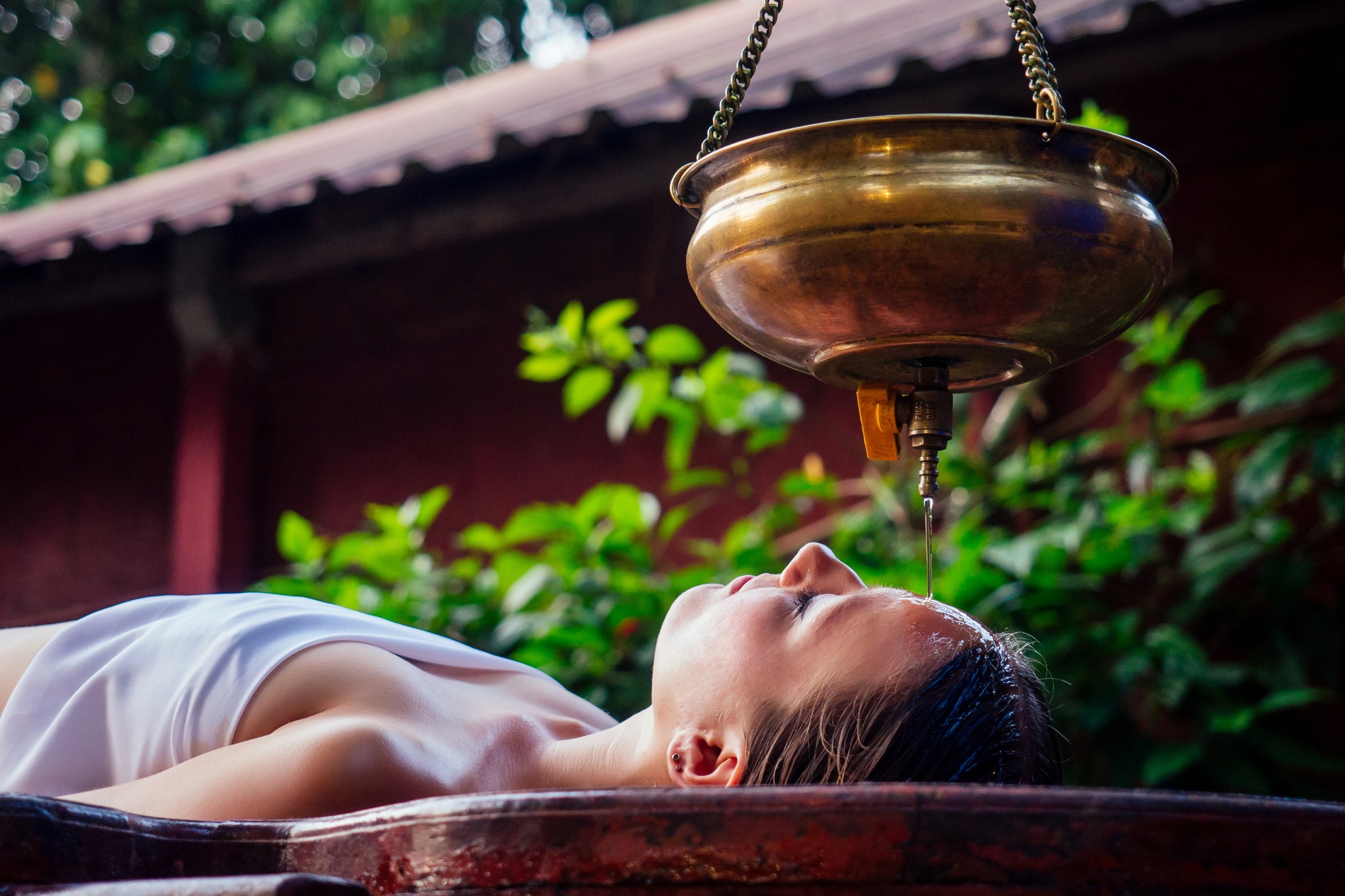
Insomnia and other sleep problems are extremely disruptive to one’s life and can have serious consequences for one’s physical, emotional, and mental health. Fortunately, Ayurveda, an ancient Indian treatment method, has been utilised for thousands of years to treat insomnia and other sleep difficulties. Continue reading to learn more about the efficacy of this age-old remedy and how it can help you obtain a better night’s sleep.
Ayurveda, an ancient Indian holistic medicine, has been practiced for over 5000 years. It is based on the principle that mental, bodily, and spiritual balance are required for optimal health and well-being. Ayurvedic treatment for insomnia and sleep problems typically focuses on reestablishing the body’s balance through dietary alterations, lifestyle changes, and herbal medicines.
Despite the fact that sleep is essential to our well-being, when we are worried or ill, it usually suffers first. Consequently, there can be a vicious cycle whereby getting too little sleep leads to increased tension and worry, which then precipitates even less sleep. If you’ve been attempting to sleep but haven’t been able to get rid of insomnia or another sleep condition, Ayurveda might help.
- It brings the body and mind back into balance through herbal medicines, nutrition, and lifestyle changes. Herbal treatments that promote serenity and relaxation are commonly employed in this course of care.
- Ayurvedic herbs including gotu kola, ashwagandha, and brahmi are frequently used to treat insomnia.
- Plants can be effectively delivered through oils, teas, and herbal supplements. Research has demonstrated that ashwagandha, in particular, is beneficial for improving sleep and reducing stress.
- Ayurveda advises modifying one’s daily schedule. This entails avoiding coffee after 2:00 p.m., having a relaxing evening routine, and sleeping in a cool, dark environment.
Ayurvedic Treatments for Insomnia and Sleep Disorders
Ayurvedic medicine believes that optimal health is achieved when an individual’s mental, physical, and spiritual identities are in sync. Insomnia and other sleep disorders can be addressed using Ayurvedic treatments. Some common ones include.
- Herbal Teas Drinking a herbal tea immediately before bedtime can help to relax and fall asleep. Chamomile, lavender, and passionflower teas are wonderful options.
- Aromatherapy Diffusing or adding relaxing essential oils like lavender or chamomile to a warm bath will help you relax and sleep better.
- Ayurvedic Herbs Ayurveda recognises a wide range of plants as good insomnia treatments. Brahmi, Ashwagandha, Shankhapushpi, Jatamansi, and Vacha are just a few of the well-known varieties. These can be taken as capsules or tea.
- Yoga and meditation These are useful practices to attempt before bed because they help calm the body and mind, allowing for a good night’s sleep.
Ayurvedic Lifestyle Tips for Better Sleep
Ayurveda may propose a variety of lifestyle changes to help you achieve a better night’s sleep. These include.
- Maintaining a peaceful, dark, and quiet bedroom free of technological devices can aid with sleep.
- Creating and maintaining a consistent sleep pattern throughout the night
- Avoid coffee, alcohol, and spicy foods in the evening.
- Before going to bed, take a hot bath to relax.
- To help you relax before bedtime, try some yoga or meditation.
Nutritional and Dietary Guidelines of Ayurveda
Ayurvedic medicine treats sleep disorders from a variety of perspectives, including dietary and nutritional changes, behavioural adaptations, and the use of herbal medicines. Here are some general dietary and nutritional advice for the management of sleep problems and insomnia.
- Consume complete, fresh foods that are simple to digest.
- Steer clear of alcohol, artificial additives, processed meals, and caffeine
- Make sure your regular diet contains a wide range of fresh fruits and vegetables.
- Make sure to include both cooked and raw foods in your diet
- Before going to bed, unwind in a hot bath.
- Eight glasses of water, fruit juice, herbal tea, soup, and stew should be had every day
How to Do Yoga Asanas and Pranayama Exercises to Encourage Sound Sleep ?
- Child’s Pose (Balasana) Kneel on the mat, sit back on your heels, and extend your arms forward,Rest your forehead on the mat and relax in this position, focusing on your breath.
- Legs Up the Wall (Viparita Karani) Sit close to a wall and lie down on your back with your legs extended up the wall.
- Corpse Pose (Savasana) Lie on your back with your legs extended and arms by your sides,Close your eyes and focus on your breath, allowing your body to relax completely.
- Seated Forward Bend (Paschimottanasana) Sit with your legs extended in front of you and hinge at your hips to reach forward toward your toes.
- Reclining Bound Angle Pose (Supta Baddha Konasana) Lie on your back, bend your knees, and bring the soles of your feet together,Allow your knees to fall open and breathe into the stretch
Treatment of Sleep Disorders With Herbal Formulations
There are several herbal remedies that have certain advantages that can be used to treat insomnia and other sleep disorders. When treating sleep disturbances, some of the most popular herbs used in Ayurvedic medicine are
- Ashwagandha (Withania somnifera): Ashwagandha is an adaptogenic herb that has been used in traditional Ayurvedic medicine. It is thought to have stress-reducing properties, which may indirectly contribute to better sleep.
- Valerian (Valeriana officinalis): Valerian is one of the most well-known herbs for sleep. It is believed to have a calming effect on the nervous system. Some studies suggest that valerian may improve sleep quality and reduce the time it takes to fall asleep.
- Chamomile (Matricaria chamomilla): Chamomile has mild sedative effects and is often consumed as a tea to promote relaxation and ease insomnia. It is known for its calming properties and may help in improving sleep quality
- Kava Kava (Piper methysticum): Kava is a traditional herb from the South Pacific that is known for its relaxing effects. Some people use kava supplements to alleviate anxiety and promote better sleep, but there are concerns about its potential for liver toxicity.
- Lemon Balm (Melissa officinalis): Lemon balm is an herb that belongs to the mint family and is believed to have calming effects. It is sometimes used to help reduce anxiety and promote better sleep.
- Passionflower (Passiflora incarnata): Passionflower is thought to have mild sedative effects and is sometimes used to alleviate symptoms of anxiety and improve sleep. Research is ongoing to determine its effectiveness.
In Conclusion
An excellent natural remedy for sleep disturbances and insomnia is Ayurveda. In addition to improving digestion and restoring homeostasis, it can also help normalise hormone levels, reduce stress and anxiety, and change behaviours that might be causing insomnia. Furthermore, you can quickly reestablish a good sleep routine with the use of ayurveda treatments including herbal medications and dietary modifications. Take a look at it now!






